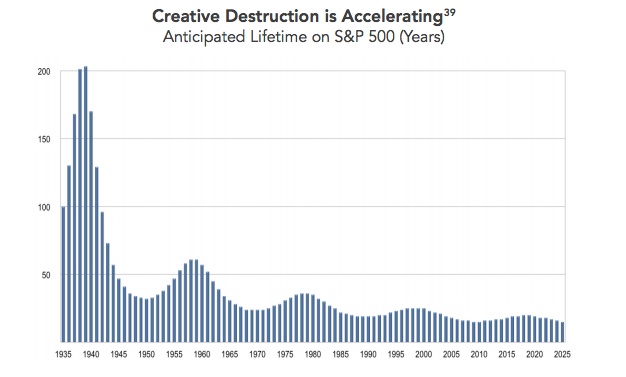
===============================================================
Howard Simons said many other intelligent things, but there is one that has stuck with me:
These Aren’t GDP Futures You’re Trading (said with respect to stocks)
Now I’ve written at least one other article on this:?Numerator vs Denominator. ?(If you have time, it is a good summary article.) ?The basic idea is this: in the long-run stocks benefit from growth in the economy. ?In the short-run, growth in the economy can push up the demand for capital because new and existing businesses need investment, and the cost of capital rises as a result. ?Second, as the economy grows, sometimes resources other than capital are proven to be in short supply, e.g., labor and resources. ?GDP may grow, but in certain contexts, profits as a share of GDP can shrink, and the share going to wages, resources, and interest may grow.
I write this for a few?reasons:
- It is by no means certain that the economy will grow more rapidly under President-elect Trump.
- It is also not certain that profits will grow more rapidly.
- Even if profits grow more rapidly, that does not guarantee that stock prices will rise.
- There are often surprising second order effects when policies change.
After the election of Trump, the old economy stocks in portfolios that I manage for clients and me?did well, and the emerging market stocks did badly, aside from a Russian small cap ETF (which flew). ?At first I wondered about the emerging market stocks, but with rising interest rates in the US, the Volatility Machine kicked in, amplifying the effects of anticipated growth in demand capital in the US, and raised capital costs in the emerging markets, sending their stock prices down.
The same thing can happen to stocks in the US if there is enough demand for capital from the US Government to rebuild infrastructure. ?Let the US Government try to borrow more than $1 Trillion per year.? Watch interest rates rise, and watch stocks fall, as Government borrowing crowds out private investment.? On a related basis, higher interest rates make dividend-paying common and preferred stocks less attractive.
That doesn’t mean that the stocks supplying the needs of the government will do badly, but remember that the growth in demand for those goods and services might not persist. ?The prices of those stocks have already embedded higher growth rates into them — will the reality outcompete the expectations?
That’s the key question for all investors now and ever: reality versus expectations. ?Good investors make cold calculations of the expectations embedded in their investments versus likely reality, and as the situation changes, they keep adjusting.
That’s why I don’t think of the post-election period as a re-animation of “animal spirits.”? I do see it as?a rational response to likely changes. ?Does that mean that the likely changes are certain to happen? No. ?But it is likely for the economy and profits to grow faster in an environment where regulation is lower (for an example, consider the first term?of the Reagan Administration. ?It is also possible that interest rates could rise enough to erase the effect of higher profits on stock prices. ?Also, with a political neophyte in the White House, there could be significant volatility in all of the markets as the new President absorbs on-the-job training at our expense. ?Remember, volatility is risk in the short-run, but less so in the long-run. ?That can have a temporary effect on the prices of risky assets like stocks.
Permanent linear changes rarely happen in complex societies, so consider:
- All sorts of things will get proposed, but what will get enacted?
- Of what is enacted, will it have the expected effect?
- Will there be other effects not presently expected, including a quick reversal or slowdown of policy changes because of public opinion changes and future electoral losses?
- How will monetary policy react?
The election and its aftermath has not changed my investing plans in any major way. Tastes, demographics, and technology have not been radically altered. ?I am reacting to what the market is doing, but what is likely to get approved, and how regulatory efforts shift is likely to be moderate rather than revolutionary. ? Even if GDP grows faster, it is no guarantee of a rising stock market in the short run.
As such, my responses are?small, and I continue to watch and adjust.

Is there any model that shows a relationship between GDP changes and future stock returns (for the market as a whole) over the next 3 to 12 months, that outperforms a model using trend or valuation to predict future stock returns?
Nick de Peyster
http://undervaluedstocks.info/
Not that I know of. I suspect it is uncorrelated. The model that I publish quarterly is better, even in the short run.
There seems to be a relationship between GDP and the change in corporate profits (reference chart 4 – http://www.hedgopia.com/corporate-profits-snap-5-straight-quarters-of-yy-%e2%86%93-will-be-difficult-to-sustain-momentum/). But the stock market has no visible relationship with GDP or corporate earnings cuase the value of a stock relies on much more than that and you made this clear in your article.
Nice article.